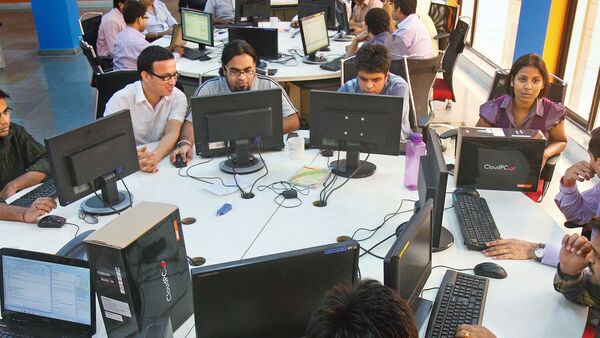MUMBAI : Indian companies reported strong credit quality in the year ended 31 March with continued debt reduction and robust profitability, despite some downgrades due to inflationary pressures, credit rating agencies said. As credit quality improved, rating company Icra Ltd reported fewer defaults. Icra reported 22 defaults in its portfolio in FY23, compared to 42 in the previous year and 44 in FY21. It also reported almost three upgrades for each downgrade, with the trend remaining consistent with the improvement in the asset quality of banks and non-banking financial companies.
“Real estate, financials, and textiles were the top three sectors in terms of rating upgrades. The warehousing and the office segments, where improved leasing activity and rising occupancy levels supported credit profiles, led upgrades in the real estate sector,” Icra said in a statement on Monday. India Ratings and Research reported that its corporate downgrade-to-upgrade ratio dropped to one of its lowest levels at 0.26 in FY23, down from 0.31 in the previous year. During the year, the agency upgraded the ratings of 295 issuers and downgraded 78.
According to Arvind Rao, senior director, India Ratings, what was impressive about the FY23 performance was that it immediately followed a year that witnessed a robust performance. “Transmission of commodity prices to end-customers supported profitability amid stubborn inflation and elevated interest costs,” Rao said. Meanwhile, Crisil also saw more upgrades than downgrades in the second half of FY23. However, the number of upgrades in the second half of the fiscal fell to 460 from 569 in the first half. The Crisil Ratings credit ratio, or the ratio of rating upgrades to downgrades, moderated to 2.19 in the second half of FY23 from 5.52 in the first half of the financial year.
Although upgrades are expected to exceed downgrades in FY24, rating agencies are cautious about the outlook on rating downgrades. Crisil expects the slowdown in export markets, the impact of higher interest rates and volatility in the commodity process to impact the outlook. It anticipates that micro, small, and medium enterprises (MSMEs) will be hit by rising input costs and interest rates just as the repayments on restructured loans begin. The Reserve Bank of India (RBI) had earlier allowed loan restructuring for small businesses hit by covid-19 and with exposure of up to ₹25 crore. “Volatile commodity prices have impacted profitability, particularly of MSMEs, while export-oriented sectors face headwinds from a slowdown in their major markets,” said Gurpreet Chhatwal, managing director of Crisil Ratings.
Like its rivals, CareEdge Ratings said its credit ratio normalized to 2.72 in the second half of the financial year after reaching an all-time high of 3.74 in the first six months of the fiscal. In the second half, CareEdge Ratings upgraded the ratings of 383 entities and downgraded the ratings of 141 entities. “The credit ratio for the second half of FY23 has normalized but remained resilient as expected, despite the slowdown in the global economy and uncertainties in the financial system as manifested in the recent streak of bank collapses,” said Sachin Gupta, executive director and chief rating officer, CareEdge Ratings.
Download The Mint News App to get Daily Market Updates & Live Business News.
More
Less
#Firms #post #strong #credit #quality #inflationary #pressures
